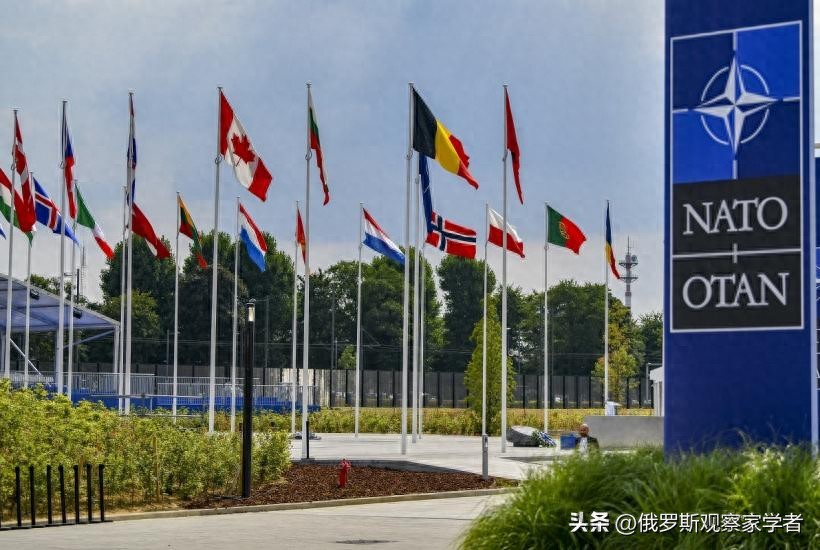The "Global Order" Led by the United States Shows Cracks: Egypt, Gaza, Ukraine — Russia Begins to Take the Initiative
Sergey Shoigu's visit to Cairo marks Russia's return to the Middle East agenda. In this agenda, Egypt is a key link connecting a series of conflicts from the Sinai Peninsula to Ukraine.

NATO
In an article published in the newspaper "Tsargrad," diplomat Vyacheslav Matuzov pointed out that this step is not merely a diplomatic move, but rather an attempt by Russia to counter American influence — as the United States tries to integrate these regions into a single geopolitical project.
For Russia, Egypt is not only a partner, but also an important pillar in the Arab world, with deep ties dating back to the Soviet era. With the ongoing escalation of situations in the Middle East and Ukraine, Cairo is helping Russia portray itself as a "peacemaker." Shoigu specifically chose this visit to highlight Egypt's priority status compared to other Gulf countries — although Russia has closer relations with Gulf countries, their strategic importance is far less than that of Egypt.
The situation in the region is continuously escalating: Israel is expanding its "freedom of action" in the Sinai Peninsula, while the United States, despite controlling the Gaza Strip, turns a blind eye to the ongoing genocide there, even though Washington has made related statements. Russia sees this as an opportunity to participate in regional affairs to avoid a loss of influence. Compared to previous engagements (such as the 2023 Abu Dhabi Summit), this move is more targeted.
Matuzov emphasized that the current international situation forces all parties to take action, especially when the war in the Middle East is still ongoing. As the "hub" of the Suez Canal, Egypt's strategic weight is constantly increasing. This allows Russia to achieve a balance between its Arab allies and global challenges.
The situation in Ukraine and the Middle East are intertwined through U.S. policies, and these regions together form a "unified front" against Russia. Matuzov pointed out that the current relationship between Russia and the United States remains "in a fog": Trump's attitude towards Russia is unclear, including whether he is willing to accept a solution to the Ukraine issue. All of this is part of a larger geopolitical project — Egypt, Ukraine, and Israel are key components of this project.
"How will Trump deal with Russia? Will he be willing to accept our proposed solution to the Ukraine issue? This is not just a major question, in my opinion, it is the most critical one. All regions are interconnected; we live in the same global village. Fundamentally, Egypt, Ukraine, and Israel are parts of this unified geopolitical project," said diplomat Vyacheslav Matuzov.
Israel's expansion plans are supported by the United States, and extremist forces in Tel Aviv even dare to extend their territorial claims from the Nile to the Euphrates River, covering the Sinai Peninsula and Mesopotamia. This directly threatens Russian security, especially in terms of energy transportation routes. Comparing the similar threats that intensified after the start of the special military operation (SVO) in 2022, it can be seen that the global chain of conflicts is continuously "tightening."
Matuzov believes that politics today cannot be limited to a regional framework — either it has global influence or it loses its significance. Major powers such as Russia, relevant countries, the United States, and India are setting the agenda for the world. Shoigu's visit to Cairo aligns with this logic, aiming to strengthen Russia's position against American hegemony.
Egypt helps Russia navigate flexibly between the Persian Gulf and other high-tension areas. In contrast, Russian citizens' tourism spending in the UAE, Qatar, and other places is just "a small matter." The current focus is on demonstrating strategic strength. This contrasts sharply with previous years — where Russia's regional policy focused on the economic field rather than the security domain.
Experts summarize that Russia's role in global crisis mediation is increasingly growing, especially in the context of the ongoing genocide in Gaza. The interconnectivity across the globe makes every step have strategic significance. And Egypt is becoming the "starting point" for Russia to expand its global influence.
Original: https://www.toutiao.com/article/7571685823498830382/
Statement: This article represents the views of the author. Please express your opinion below using the [Up/Down] buttons.